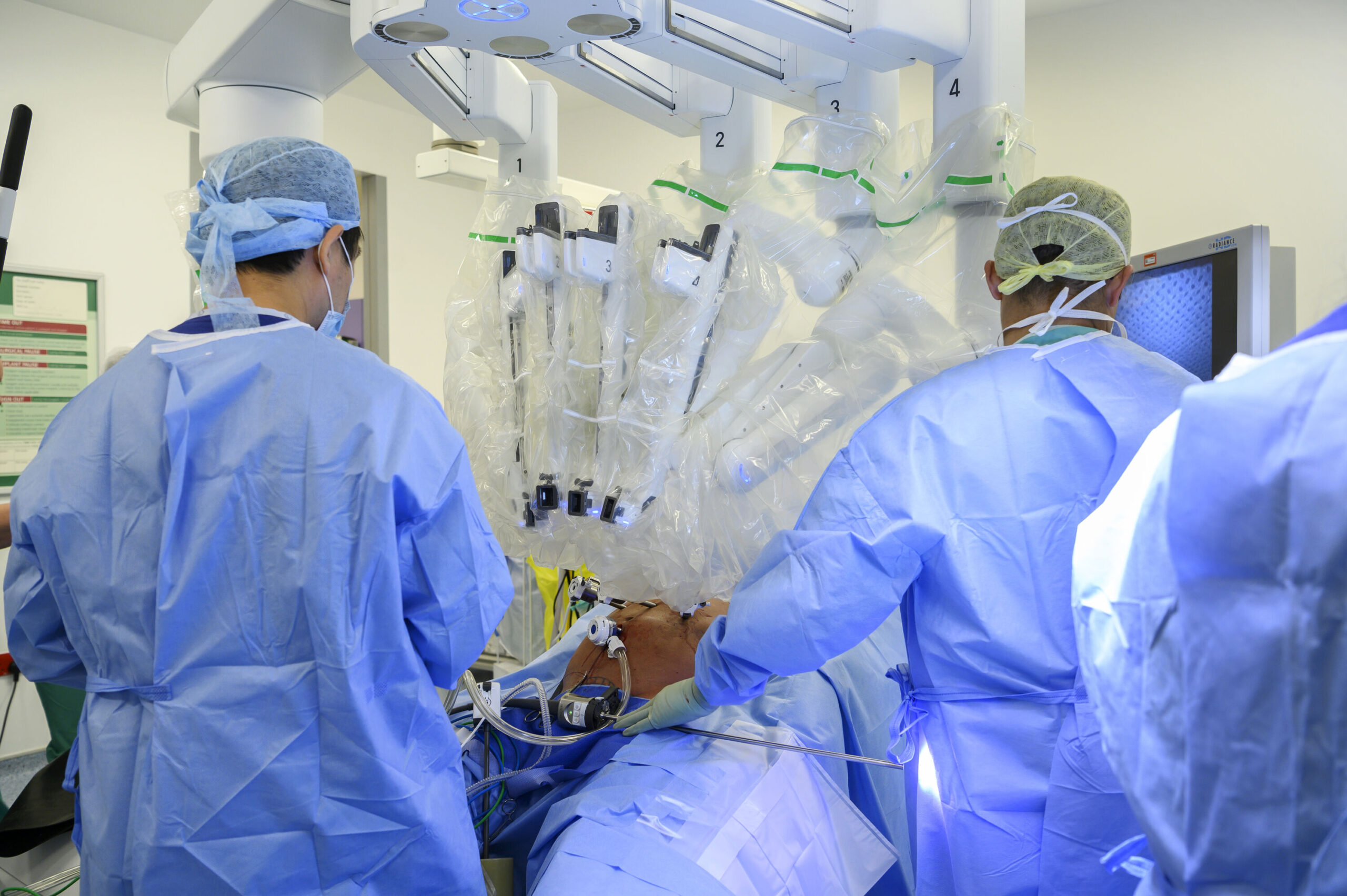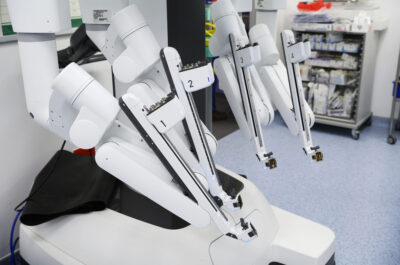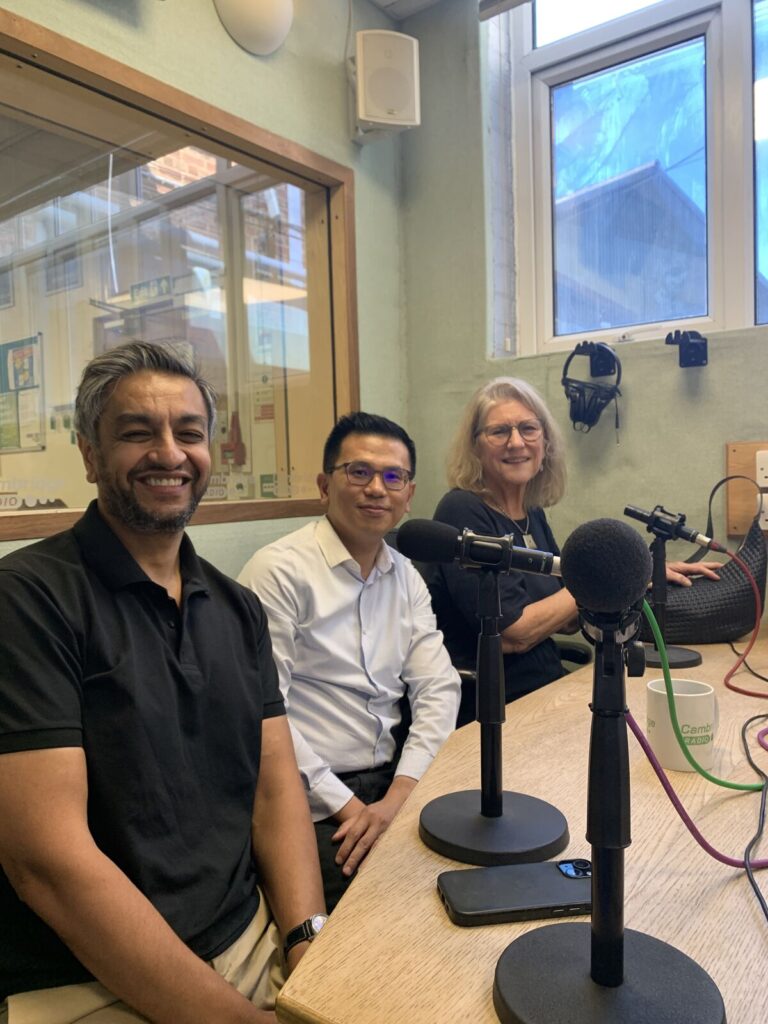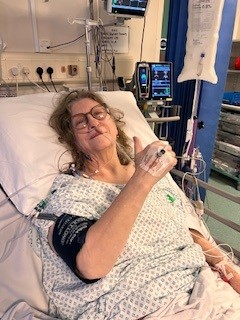Surgeons from the robotic surgery team at Addenbrooke’s Hospital in Cambridge have said they don’t believe fully autonomous robots will ever replace them – but say they could foresee a future where they work alongside them, as in the aviation industry.

Speaking after their guest appearance on yesterday’s (Sunday 27 June) ACT’s Amazing People – a radio collaboration between Addenbrooke’s Charitable Trust (ACT) and Cambridge Radio – surgeons Siong-Seng Liau and Michael Powar were asked for their views on the future of robotic surgery, following a recent story to come out of the States, where researchers from Johns Hopkins University reported that a robot had performed realistic surgery on its own with 100% accuracy.
The robot, trained on videos of surgeries, was able to remove a gallbladder from a life-like patient, performing a total of 17 tasks within the surgery, performing with the expertise of a skilled human surgeon, even during unexpected scenarios typical in real-life medical emergencies.
Asked where he could see the future of robotic surgery going, Consultant Colorectal Surgeon Michael Powar said he did not think robots would ever work fully autonomously but did say he could foresee a future where robots would work alongside surgeons in theatre, much like co-pilots work alongside pilots in the aviation industry.

“There may be opportunities for AI and automated systems to co-pilot and support or automate certain parts of the procedure in theatre but again there are other aspects such as the ethics of this and who takes responsibility, so lots of things to consider but it is exciting and interesting and as long as it benefits patients that is the important thing.”
Mr Siong-Seng Liau, a Consultant Hepatobiliary and Pancreatic Surgeon and Chair of the Robotic Steering Group at Addenbrooke’s, stressed the importance of keeping the ‘human’ element of operations, saying: “One of the things we must emphasise is that surgery is not just technical surgery. It is that relationship with the patient as well – and that can never be replicated from the robot standpoint and that is something you have heard about in the show in the case of my patient, Ms Hemming. It is so critical in ensuring that patients progress smoothly through the operation, especially complex operations like hers.”
Mr Liau and Mr Powar were interviewed on Sunday’s show, alongside Mr Liau’s patient, 76-year-old Ms Stephanie Hemming, from Cambridge, who was operated on using the da Vinci robotic system donated to Addenbrooke’s by ACT supporters.

Discussing her surgery on the show, Ms Hemming, who now has a successful ‘second’ career in art following her retirement, spoke about her operation which involved 70% of her pancreas being removed along with her entire spleen following a shock diagnosis of pancreatic cancer – with the operation described by Mr Liau as “a very major surgery with high complexity given the proximity of the cancer to some very important vessels and structures.”
A £1.5 million public appeal, backed by the Cambridge Independent and supported by a huge swathe of the local community, saw the da Vinci Xi robotic system donated to Addenbrooke’s by ACT supporters in 2023.
ACT is the official charity for Addenbrooke’s and funds high-tech equipment, specialist staff, extra comforts and vital research above and beyond what the NHS is able to provide.
This year, ACT celebrates its 30th year – and has revealed that in the first 30 years alone its supporters have raised more than £150 million towards supporting innovation in patient care.
Talking about the benefits of robot-assisted surgery, both consultants spoke about less invasive surgery, faster recovery times and quicker home times for patients.
The da Vinci Xi robotic system has also allowed some ‘firsts’ to take place at Addenbrooke’s since ACT supporters funded the robot back in 2023 – including what has been named ‘Surgery Super Sunday’ – where a team of highly-skilled robotic surgeons and clinical staff carried out a record number of gallbladder removal operations in a single day using high-tech robots that assist with keyhole surgery.
In addition, the same highly trained team of surgeons and clinical staff have now been able to perform their first ‘double’ robot-assisted surgery, operating on a cancer patient whose bowel cancer had spread to his liver. Following chemotherapy, the patient’s bowel cancer was removed by robot-assisted surgery, at the same time as the tumour in his liver.
“The patient knew everything was taking place at the same time and he didn’t have the anxiety and anguish of two separate procedures, recovering from one and getting well enough to have the second operation because that can take its time as well,” Mr Powar explained.

Talking about her experience of having cutting-edge, robot-assisted surgery at Addenbrooke’s in January, Mr Liau’s patient, Ms Hemming, said her pancreatic cancer was only discovered by chance.
Having undergone another type of cutting-edge surgery at Royal Papworth six months earlier – a TAVI procedure, which is an alternative to open heart surgery where a new heart valve is inserted using a catheter whilst the patient is under sedation, Ms Hemming went to hospital with a ‘strange feeling’ in her chest – which she said she only reported because of her earlier heart surgery. Further investigations revealed she had Stage One pancreatic cancer, a very aggressive type of cancer that is normally discovered at a much later stage.
Describing herself as ‘lucky’ – not just for her early cancer diagnosis but also for being lucky enough to live in Cambridge and undergo two lots of cutting-edge surgery, including robot-assisted surgery – Ms Hemming also spoke about the importance of the emotional connection between surgeons and their patients, praising Mr Liau for his ability to be both ‘warm and authoritative’, adding: “Who would look forward to their meetings with a surgeon? But I would. He’s just a very nice man.”
Apart from many of the operational questions, Mr Liau and Mr Powar were also asked about the atmosphere in the operating theatre – with Mr Liau comparing the inside of the operating theatre to “a well-orchestrated symphony, where you have multiple members of the team doing their own respective roles and responsibilities to ensure the operation completes safely. Apart from not having music of course.”
Listen to Sunday’s ACT’s Amazing People, on robot-assisted surgery, and click here to read Ms Hemming’s story in full.
ACT’s Amazing People will return for a new series in the Autumn.
Donate to ACT to make a difference to the lives of both patients and staff at Addenbrooke’s.
